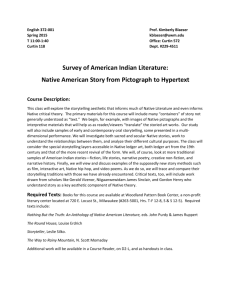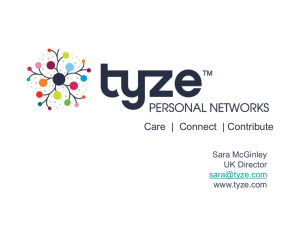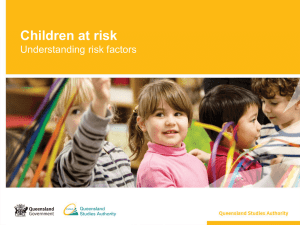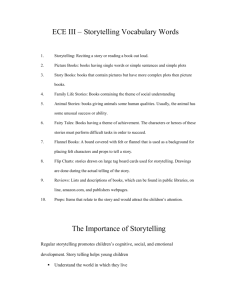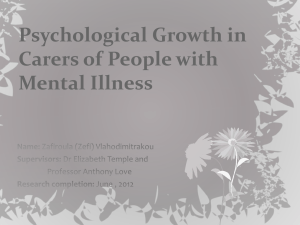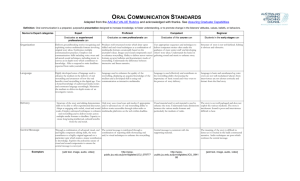DOCX - Consumer Involvement Toolkit
advertisement
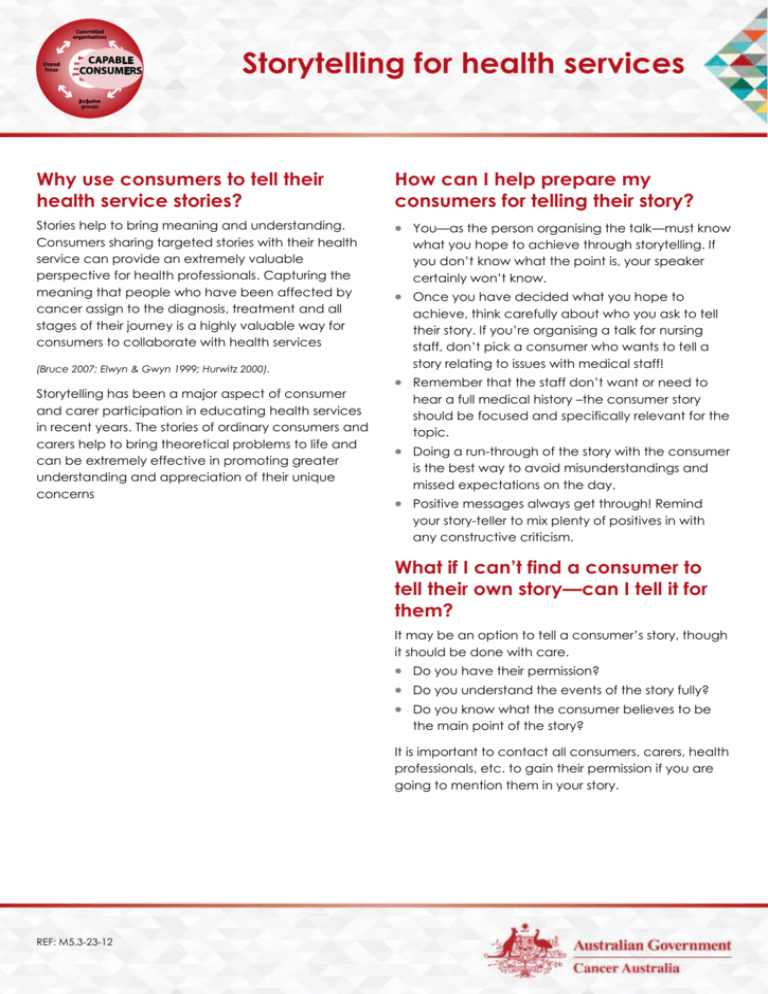
Storytelling for health services Why use consumers to tell their health service stories? How can I help prepare my consumers for telling their story? Stories help to bring meaning and understanding. Consumers sharing targeted stories with their health service can provide an extremely valuable perspective for health professionals. Capturing the meaning that people who have been affected by cancer assign to the diagnosis, treatment and all stages of their journey is a highly valuable way for consumers to collaborate with health services You—as the person organising the talk—must know (Bruce 2007; Elwyn & Gwyn 1999; Hurwitz 2000). Storytelling has been a major aspect of consumer and carer participation in educating health services in recent years. The stories of ordinary consumers and carers help to bring theoretical problems to life and can be extremely effective in promoting greater understanding and appreciation of their unique concerns what you hope to achieve through storytelling. If you don’t know what the point is, your speaker certainly won’t know. Once you have decided what you hope to achieve, think carefully about who you ask to tell their story. If you’re organising a talk for nursing staff, don’t pick a consumer who wants to tell a story relating to issues with medical staff! Remember that the staff don’t want or need to hear a full medical history –the consumer story should be focused and specifically relevant for the topic. Doing a run-through of the story with the consumer is the best way to avoid misunderstandings and missed expectations on the day. Positive messages always get through! Remind your story-teller to mix plenty of positives in with any constructive criticism. What if I can’t find a consumer to tell their own story—can I tell it for them? It may be an option to tell a consumer’s story, though it should be done with care. Do you have their permission? Do you understand the events of the story fully? Do you know what the consumer believes to be the main point of the story? It is important to contact all consumers, carers, health professionals, etc. to gain their permission if you are going to mention them in your story. REF: M5.3-23-12 To read more about story telling see: Our Consumer Place. 2011. Speaking our minds: A guide to how we use our stories http://www.ourconsumerplace.com.au/files/SpeakingOurMinds.pdf References Cancer Australia. 2009. Consumer participation guide. Bruce, N. 2007, Makers of meaning: Consumer participation in breast health and the role of women's contribution in breast health knowledge, MA Thesis, La Trobe University, Unpublished. Elwyn, G, & Gwyn, R. 1999. Stories we hear and stories we tell: analysing talk in clinical practice. British Medical Journal, 318, 186 - 188. Mental Health Council of Australia. 199., The Kit: A guide to the advocacy we choose to do. A Resource Kit for Consumers of Mental Health Services and Family Carers, 1st edn, Commonwealth Department of health and Family Services, viewed 14 Jan 2008, http://www.mhca.org.au/Resources/CommunityDevelopment/index.html#TheKit Reprinted with permission from Health Issues Centre.


